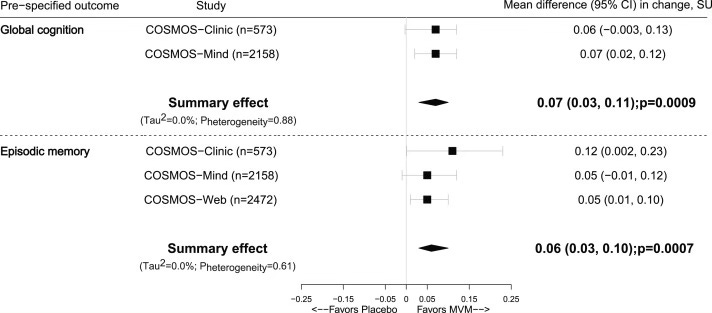The nutrition community is currently taking a dump on multivitamins. They have for a while, to be fair, but now more than ever. This new cohort study suggested they do not increase lifespan and everyone is losing their mind. Even people I consider highly intelligent are saying they are essentially bin juice, not effective in the slightest and potentially harmful due to the possibility of overdose. Personally, I don’t get it.
Here’s a really obvious question that no one seems to be asking: who on this planet takes a multivitamin-multimineral supplement (MVM) to not die? People care about not dying, sure, and people trust in nonsense lifestyle protocols to not die, sure, but taking MVM is usually not one of them. Rather, people take MVM, or supplements generally, usually to improve ‘overall health’ and ‘wellbeing’, which tend to have much broader definitions than ‘a beating heart’. So yeah, maybe I’m crazy, but focusing on death isn’t that important with MVM; it’s not what MVM is marketed to do and it’s not why people buy them.
More to Life Than Death
One major reason people do take MVM is ‘to fill nutrient gaps’ and act a bit like an insurance policy against nutrient deficiencies, that we know can cause health issues. I do it. And guess what? It works. Compared with food alone, regular MVM use has been significantly associated with decreased odds and/or reduced risk of clinical deficiency (defined by biomarker status) with a myriad of nutrients. In one study, MVM corrected deficiencies in vitamins B6 and D. In another, MVM corrected 15 of 17 nutrient inadequacies. In one more, MVM improved vitamin status in all but one participant starting with non-optimal vitamin status. These kind of results have been found in not just young populations but older ones too. Shocking right – take an MVM and get more nutrients. Who would have thought?
Another reason people take MVM is to benefit short-term health, including outcomes that range from energy levels and concentration, to sleep quality and joint pain. And again, at least for some of these that have been studied, MVM works. A meta-analysis of the three COSMOS cognitive substudies (COcoa Supplement and Multivitamin Outcomes Study; -Clinic, -Mind, -Web) totalling over 5,000 participants provided strong support for the position that MVM benefits cognition. In this summary analysis, MVM significantly benefitted global cognition versus placebo with a magnitude of effect equivalent to reducing cognitive ageing by two years. Episodic memory also significantly improved versus placebo. This is just one set of studies, of course, but the rest of the literature is pretty consistent with either neutral studies or those indicating a benefit in at least one major cognitive domain. I’m not aware of any in support of harm.
There are other population-specific benefits, too, that I won’t ramble on about, but include lower odds of low birth weight in pregnant women, better birth outcomes in young pregnant women, and a slight delay in the progression of age-related macular degeneration. But, y’know, who cares about these people or their babies when they will all die anyway?
O Yeah, Maybe We Will Live Longer After All
Also, for the sake of argument, let’s just say that people did only buy MVM supplements to not die, whether from cancer, heart disease, or getting plonked on the head — what then? Is there really no benefit? Well, based on currently available evidence, which is not of particularly high quality, I think MVM supplementation actually favours a mild benefit for mortality anyway. At the very least, it’s definitely not as clear-cut as many suggest. The evidence I use to support my position here is interestingly the same as people who hold the opposing position, which is a couple of meta-analyses, published in 2021 and 2022, one by JAMA and another by the US Preventive Services Task Force. Both analysed nine randomised controlled trials with all-cause mortality as an endpoint, and both found MVM was associated with a nonsignificant relative reduction in the risk of death (all-cause mortality) versus placebo.
You might see the word ‘nonsignificant’ and look no further, but all this means is that the data at hand could not formally reject the hypothesis that MVM does not affect death versus placebo. It doesn’t paint the whole picture. For causal inference, I value point estimates and confidence intervals as much as I value p-values. They go hand-in-hand. Given this, let’s consider that the most compatible estimates of effect in these studies were a 5% and 6% reduction in death in favour of MVM. Plus, given the confidence intervals, there was a 95% probability in one of the studies that the ‘true effect’ of MVM was between a 13% reduction to a 1% increase in all-cause death. In the other study, it was similar, between a 10% reduction to a 1% increase. So basically, the odds are not so much out of our favour as simply saying “no benefit”, which, let’s be honest, is nothing but scientific laziness.
Back to Reality
We are basically at a point where we can tell the average person to take one cheap pill a day and have a good chance of functioning better mentally and reducing their risk of nutrient deficiencies, among a couple of other benefits. That’s pretty neat. Maybe we will die at the same time anyway, or maybe we will die one month later, or a year later. Who cares? All I know is that anyone saying MVM is useless because of a possible lack of longevity benefit probably needs to rethink their position. They probably don’t think that way about other supplements, like creatine, so why the logical incoherence with MVM? Again, it’s not what MVM is marketed to do and it’s not why people buy them.









There’s more to life than death…love that subtitle. And agree with you 🤙🏼
Some of the smart people I've heard talk about this and harp on about how MVMs basically just produce "expensive piss" do also mention that unless you have a medically diagnosed deficiency, it's not necessary. But I understand your argument here to be that one doesn't have to wait until they have been diagnosed. Taking them as insurance policies can be good practice.?